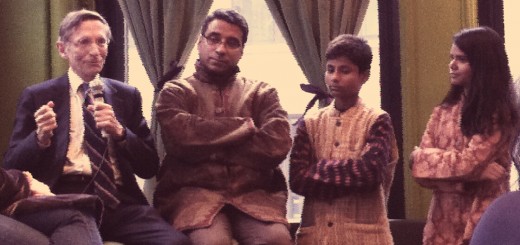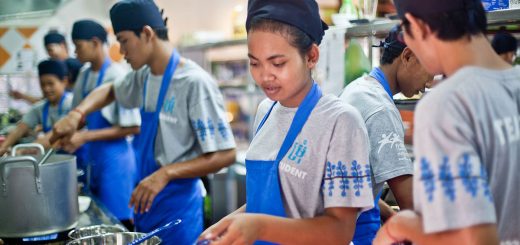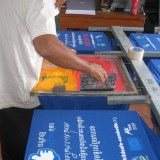Migrants, Mediation and Medicines
Although always around throughout the 30 years we have been active there, migration is currently very much in the news across South East Asia. Whether forced migration, into jobs such as scam call centers or online casinos, fishing boats in the Gulf of Thailand, or making illegal and risky border crossings to find work in other countries, people are generally driven for economic reasons to take what are often unsafe decisions. They leave children and other family members behind, hopeful of being able to send them financial support at some point. As we will see in some of the following migrant stories, this may be more difficult than they thought.
Outstanding Amounts
We begin with the case of 40-year-old Boon*, which was referred to the Peuan Peuan, (Friends-International Thailand) hotline in February 2024, via the Peuan Mit Friends team in Laos.
They had received a call for help from the father of two (a 9-year-old boy and 7-year-old girl), originally from Laos. He was working illegally at a construction site in Lai Province, near the Thailand/Laos border, and was concerned over what he could do. His employer had not paid him, and owed him nearly 20,000 baht ($577) in wages, which he would mostly use to send to his family back in Laos to support them.
On hearing this, the team contacted the Thailand Labor Protection office in the province to report the situation. They then advised Boon to formally report this issue to their office, with us providing guidance on the location and how he could best reach the Labor Office.
This, plus our continued follow up on the case, ultimately resulted in the employer agreeing to pay Boon the outstanding wages owed to him.
The second case again centered on Thailand. In Talad Thai, a 50-year-old Cambodian man and his 45-year-old wife, both working undocumented in the construction industry found themselves in difficulties. Our program had first met with them during the COVID-19 pandemic, supplying them with emergency food support, vaccines and other help with health issues at that time.
The couple had made Thailand their home for over five years, sending money back to their family in Cambodia.
With two married children – a 24-year-old son and a 22-year-old daughter, and a young granddaughter, that family’s needs were ever-increasing. The son and daughter had dropped out of school early to take on the responsibility of caring for their grandparents, who in turn looked after their granddaughter.
The couple reached out to us once more as they had a serious financial problem – their employer had failed to pay the family their due salary – 14,000 Thai Baht, just over $400.
On their behalf, our team was eventually able to negotiate that payment would be made, albeit in increments. The full amount the couple were owed has now been paid, and they continue to work hard in Thalad Thai, regularly sending money back home to their family in Ta Kheav province in Cambodia.
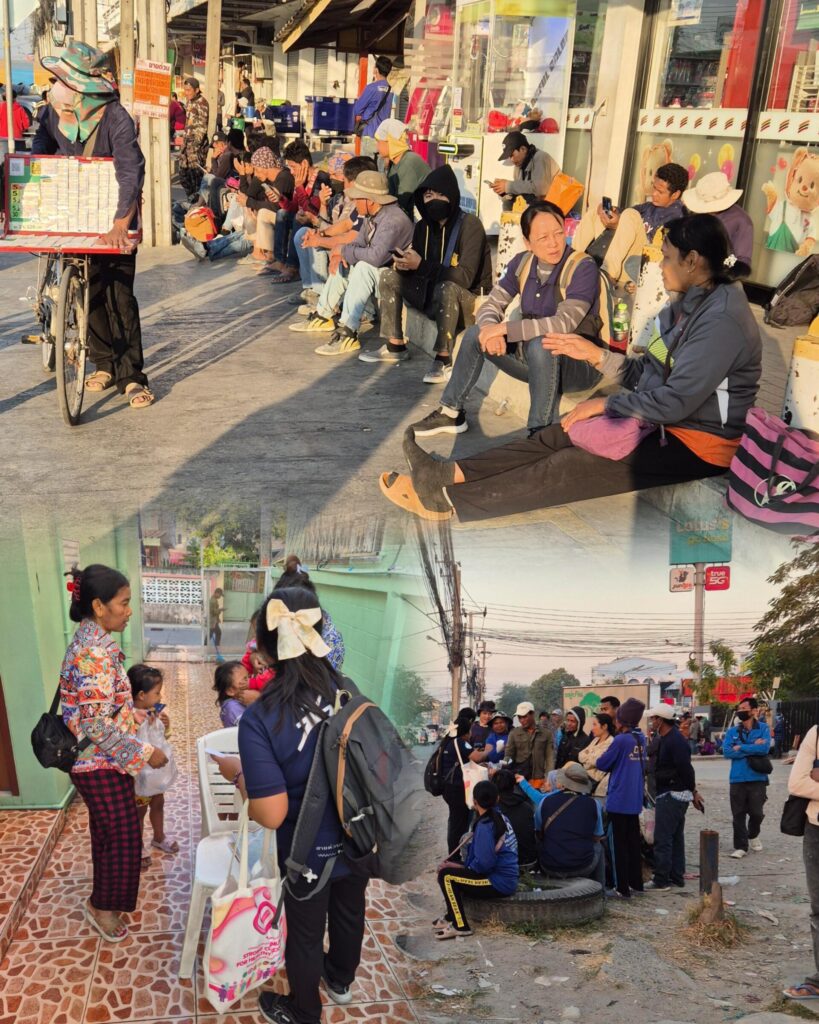
ARV Assistance
Our final story is a little different.
At just 24 years old, Phon’s* life had already been marked by the challenges thrown up from living as an LGBT individual in Laos. He had decided some years previously to cross the border into Thailand, seeking a better life and the freedom to be his authentic self.
In the bustling city of Ubon Ratchathani, Phon found employment at a local beauty salon, eking out a living initially as an undocumented migrant worker. However, the safety and security he craved remained elusive, as he now knew he had contracted HIV.
His situation came to the attention of our program in Laos, and they reached out to our Bangkok-based team for help.
Our team sprang into action – contacting the Thai Red Cross they rapidly identified a hospital in Ubon Ratchathani that could provide the necessary antiretroviral (ARV) treatment. They even offered to support Phon’s transportation to the hospital, hoping to make the process as seamless as possible.
However, as his preference was to receive treatment back in Laos, Phon declined the support offered in Thailand. He opted instead to return to his homeland where our team continued to help him access the necessary treatments.
Following those treatments, and with his medications, Phon has now gone back to Thailand, this time as a legally documented worker in a restaurant in Bangkok.
Three stories that highlight some of the pitfalls of migration, yet also the cross-border collaborations that can be taken to mitigate these issues.
Ending unsafe migration and finding solutions for children left behind are priority areas of our work in the coming years – help us to achieve a positive impact by supporting that work at friends-international.org/donate
*names changed for privacy
